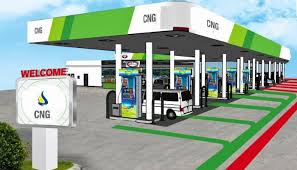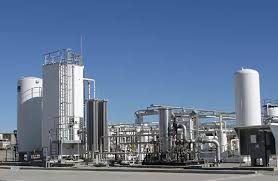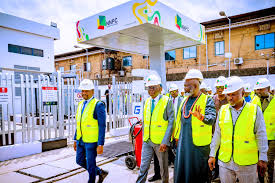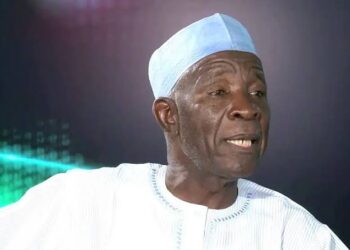The Federal Government announced the launch of the Conversion Incentive Programme for Compressed Natural Gas in Ibadan, the capital city of Oyo State, on Thursday. This initiative aims to alleviate the effects of the removal of fuel subsidies while fostering a safer, cleaner, and more dependable transportation future for Nigeria. Michael Oluwagbemi, the Chief Executive Officer and Programme Director of the Presidential Compressed Natural Gas Initiative, indicated that this program seeks to achieve one of the primary goals outlined in President Bola Tinubu’s Renewed Hope Agenda.

Oluwagbemi highlighted the necessity for Nigerians to fully support the initiative, asserting that the widespread adoption of CNG could initiate a transformative change in the nation. “The President has encouraged Nigerians to have faith in this initiative and to enable the country to utilize its own resources,” he stated. He expressed concern over Nigeria’s dependence on imported and subsidized petroleum products, which has resulted in the nation’s growth and economic stability being contingent upon foreign countries. “Nigeria has been burdened with the high costs of PMS and diesel, which adversely affect both our health and our financial well-being. A more advantageous option is to harness our own resources, which are cleaner, more affordable, safer, and more reliable.”

Natural gas is widely available throughout Nigeria, with 30 of the 36 states possessing significant reserves. Nigeria’s gas reserves are sufficient to sustain the country for over a century, positioning Nigeria among the largest holders of gas reserves globally and the foremost in Africa. The process of converting this gas for applications in transportation, generator fueling, or industrial power is considerably more straightforward than establishing a refinery.
In comparison to the Dangote refinery, which has a processing capacity of approximately 650,000 barrels per day—translating to around 100 million liters of petrol daily, sufficient to fuel about 36 million vehicles—he emphasized the transition of vehicles to compressed natural gas (CNG) does not necessitate the same extensive infrastructure, rendering petrol both expensive and resource-intensive. Given these abundant natural resources, one must question why Nigerians, living near the ocean, would resort to ineffective means.
In the case of petrol tanker incidents, the likelihood of an explosion is alarmingly high, occurring in nine out of ten cases. In contrast, CNG presents a significantly lower risk, with only one in ten incidents resulting in an explosion. Additionally, CNG is eight times less explosive than diesel and eighteen times less explosive than petrol.



































